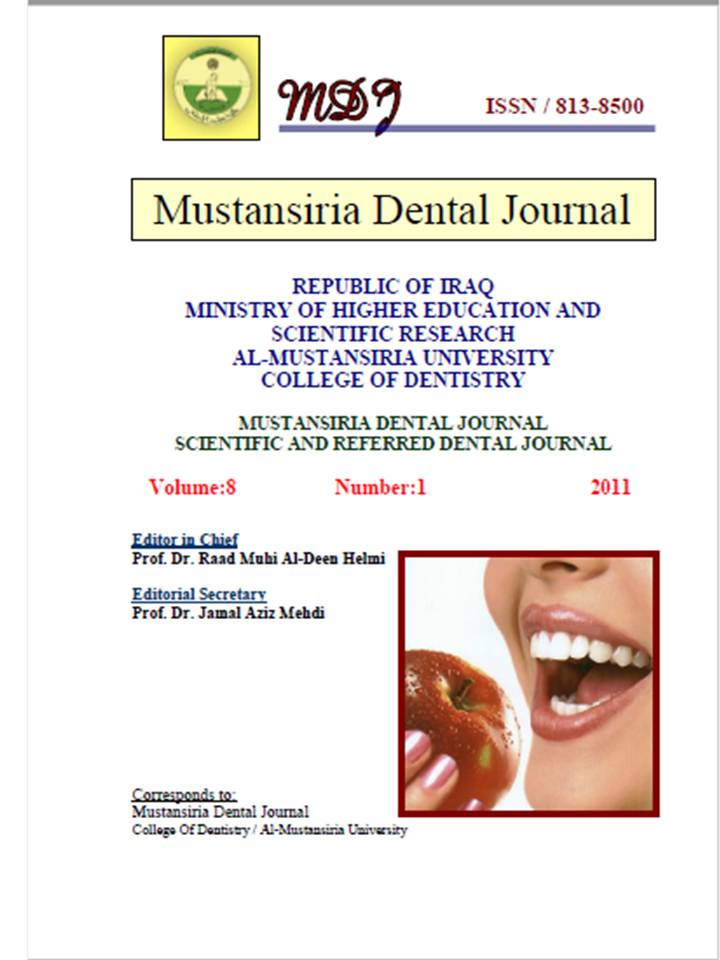A prospective study to examine the bleeding tendency of patients receiving regular low-dose aspirin therapy
DOI:
https://doi.org/10.32828/mdj.v8i1.285Keywords:
Key words: bleeding tendency- Aspirin therapyAbstract
The fear of uncontrolled bleeding often prompts medical practitioners to stop
aspirin intake for seven to 10 days before any surgical procedure. This study was
initiated to evaluate the effect of aspirin on bleeding in patients undergoing oral
surgery.
The study group consisted of 39 patients who were subjected to undergo dental
extraction. All patients were receiving 100 milligrams of aspirin daily on a regular
basis. Patients were randomly divided into two groups: those who stopped the aspirin
therapy before the procedure and those who continued the aspirin therapy. One hour
before the procedures, all patients underwent a bleeding time test. In addition, the
amount of bleeding during the procedure was measured.
The mean (± standard deviation) bleeding time was 1.8 ± 0.47 minutes for patients
who stopped aspirin therapy one week before the procedure. For patients who
continued aspirin therapy, the bleeding time was 3.1 ± 0.65 minutes. The difference
was statistically significant (P = .004). However, both groups were within the normal
bleeding time range, and in both groups, a local hemostatic method was sufficient to
control bleeding. No episodes of uncontrolled intraoperative or postoperative bleeding
were noted.
Stopping of low-dose aspirin therapy is not a must before oral surgery. Local
hemostasis is sufficient to control bleeding.

Downloads
Published
Issue
Section
License
The Journal of Mustansiria Dental Journal is an open-access journal that all contents are free of charge. Articles of this journal are licensed under the terms of the Creative Commons Attribution International Public License CC-BY 4.0 (https://creativecommons.org/licenses/by/4.0/legalcode) that licensees are unrestrictly allowed to search, download, share, distribute, print, or link to the full texts of the articles, crawl them for indexing and reproduce any medium of the articles provided that they give the author(s) proper credits (citation). The journal allows the author(s) to retain the copyright of their published article.
Creative Commons-Attribution (BY)








